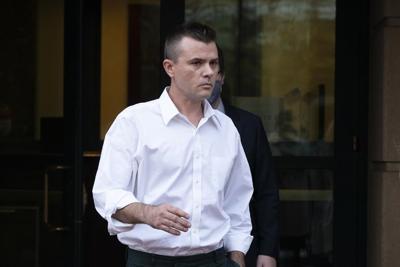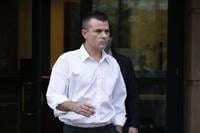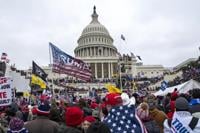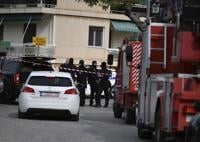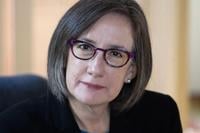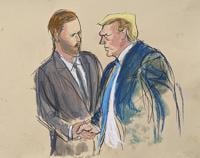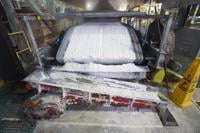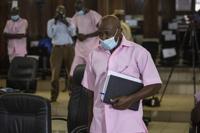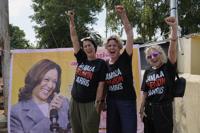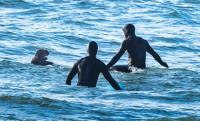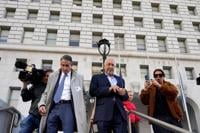ALEXANDRIA, Va. (AP) — A Russian analyst who played a major role in the creation of a flawed dossier about former President Donald Trump fabricated one of his own sources and concealed the identity of another when interviewed by the FBI, prosecutors said Tuesday.
The allegations were aired in opening statements in the jury trial of Igor Danchenko, who is indicted on five counts of making false statements to the FBI, in U.S. District Court in Alexandria.
The FBI interviewed Danchenko on multiple occasions in 2017 as it tried to corroborate allegations in what became known as the “Steele dossier.”
That dossier by British spy Christopher Steele — commissioned by Democrats during the 2016 presidential campaign — included allegations of contact between the Trump campaign and Russian government officials, as well as allegations that the Russians may have held compromising information over Trump in the form of videos showing him engaged in salacious sexual activity in a Moscow hotel.
Specifically, prosecutors say, Danchenko lied when he said he obtained some information in an anonymous phone call from a man he believed to be Sergei Millian, a former head of the Russian-American Chamber of Commerce.
Prosecutor Michael Keilty told jurors that Danchenko never spoke with Millian and that phone records show he never received an anonymous phone call at the time Danchenko claimed it occurred.
Prosecutors also say Danchenko lied when he said he never “talked” with a man named Charles Dolan about the allegations contained in the dossier. But prosecutors say there is evidence that Dolan and Danchenko “spoke with Mr. Dolan over email” about very specific items that showed up in the dossier.
The FBI needed to know that Dolan was an important source for Danchenko, Keilty said, because Dolan is a Democratic operative who has worked on the presidential campaign of every Democratic candidate since Jimmy Carter, and thus would have had motivation to fabricate or embellish allegations against Trump.
“Those lies mattered,” Keilty said.
But Danchenko's attorney, Danny Onorato, told jurors that his client was completely truthful with the FBI.
He pointed out that Danchenko never said he was certain that Millian was the source of the anonymous call but that he had good reason to believe it. The government's case requires jurors to become “mind readers” to assess Danchenko's subjective belief about the source of the phone call, Onorato said.
And while phone records may not show a call, Onorato said, the government has no idea whether a call could have been placed with a mobile app rather than a traditional telephone provider. Indeed, Onorato said, it makes more sense that such a call would have occurred using an Internet app because so many of them conceal the source of the call, and the caller wanted to be anonymous.
As for the allegations about his discussions with Dolan, Onorato said, Danchenko answered the question truthfully because the two did not “talk” — but rather had a written exchange. If the FBI wanted to know about email exchanges, it should have asked a different question, Onorato said.
“The law doesn't let you rewrite the dictionary,” Onorato said.
Danchenko is the third person to be prosecuted by special counsel John Durham, who was appointed to investigate the origins of “Crossfire Hurricane” — the designation given to the FBI’s 2016 probe into former president Trump’s Russia connections. It is also the first of Durham’s cases that delves deeply into the origins of the dossier, which Trump derided as fake news and a political witch hunt.

